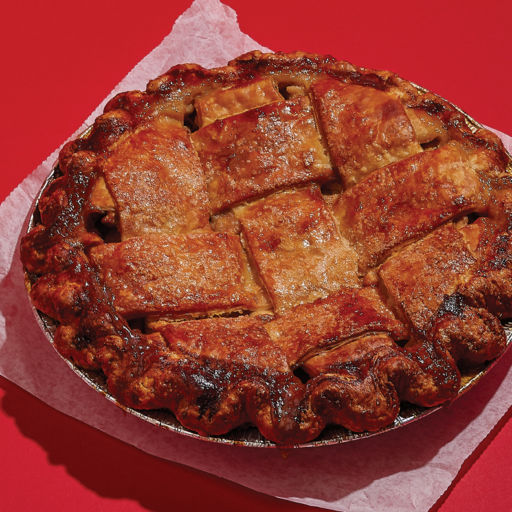This story, about the highly recommended act of dining alone, story appeared in our debut, Fifty Grande Magazine #1, the Hometowns issue.
She looked like a cross between Robin Wright and Leslie Mann, walking into the Midtown restaurant wearing a raincoat and sneakers. She sat at the table next to mine and ordered a vanilla affogato and some water before taking off her sunglasses, which were hiding striking blue eyes. Suddenly, her blond hair looked even blonder. Once the ice cream was served and the espresso poured on top, she ate it slowly, systematically taking three bites before gulping down some water, a sight that stood out given people’s propensity to scarf down sweets so quickly, before having a chance to regret their decision. She looked peaceful, at ease with herself and the world around her. Alone, she looked happy.
Have you ever eaten at a restaurant by yourself? Walked in, asked for a table for one, and indulged in the temporary blissfulness involved in treating yourself to a meal cooked for you but not by you, tucking your phone away, sitting amid folks whose own stories and histories might be readily similar or utterly dissimilar to yours?
Sitting down at a restaurant solo can feel astonishingly liberating, surprisingly educating, and at times even addicting.
Whether in a big city like New York — where getting lost within a crowd feels at times more comforting than navigating it with friends in tow — or a small town, dining alone functions as a sort of announcement: I am comfortable with my own thoughts, need time with them, and find pleasure in an activity I partake in independently. Sitting down at a restaurant solo can feel astonishingly liberating, surprisingly educating, and at times even addicting. And, to some, that is the essence of human pleasures: finding pockets of enjoyable freedom amid the normal vicissitudes of life. For others, whether it’s true or note, believing the world is silently judging their solo dining pursuit is anything but pleasurable.
But…why? Why does being alone and dining alone in public fill some with wonder and others with the purest form of dread?
Does it all hark back to lonely adolescent lunches in elementary school cafeterias? Is the panic that ensues within some restaurants after a request for a table for one the result of a town’s cultural norms? When did aloneness — a concept at its core dissimilar to loneliness — become taboo, a forbidden act to be avoided at all costs? Can solitary meals in public places actually lead to great human interactions?
In my solo dining journeys across the globe, I met people, eavesdropped on people, learned about people, and even kissed people. I was alone, but I became a fuller, more complete person as a result of that aloneness. Undistracted by tech gadgets or dining partners, I not only ate the food I wanted to eat, but I virtually ate up the environment that my food was served in, diving into cultures and listening to tales that have shaped my persona.
While sitting at a table, dining alone, again, by the Duomo in my former hometown of Milan, Italy and indulging in a perfectly cooked plate of pasta pomodoro, I overhead a family of tourists debating a potential move to the city. I turned around and sang the praises of a town that still feels like my own, arguably shaping the family’s very own existence, potentially tilting the scale of their decision, and helping them gauge options that I wouldn’t have been privy to had I spent my dinner with my headphones on or with dining companions. Sure, fellow eaters might have been just as interesting as the clan beside me, but would I be as important to them as I had been to the family of four?
Look at these people, I thought to myself with a belly filled with food I ordered and consumed all by myself, they’re what happiness looks like.
In another town, at another time: A one-person lunch of falafel and hummus at a cafe in Tel Aviv evolved into a people-watching session that, in turn, evolved into a self-reflection about a seemingly endless relationship that felt like a Luna Park swing ride whose “off” button stopped working. Embracing my surroundings, unencumbered by someone’s company, I noticed the behavior of couples around me. There were people in real love, showcasing the sorts of relationships that I wished for myself and that — in that instant it became clear — did not resemble my connection to my something-that-was-never-even-a-boyfriend. Look at these people, I thought to myself with a belly filled with food I ordered and consumed all by myself, they’re what happiness looks like.
Back in New York, while grabbing plenty of meals by myself before hitting plenty of Broadway shows by myself, I met a group of men working for the Israeli Embassy, a venue that ended up becoming my neighbor years later (I did not, however, bump into said men ever again); I overheard tourists gushing about a city that I’ve lived in for 14 years but still takes my breath away and used those gushings to propel my desire to write about said city; and I even developed a deep dislike for the sorts of Manhattan bros who take over Midtown during brunch time on a random Sunday in August before a matinee show, guys who spend more time finding the ideal angle (ideal for what?) to snap a picture of their pancakes instead of reveling in the food’s sweetness.
In a today that is defined by the power of immediate connectivity, a power propelled by the seeming unquenchable modern desire to be perpetually “on,” the mere thought of solo journeys — whether cross-country trips booked on a whim, walks around the block sans cell phone, or lavish meals consumed without the constant glances of companions — is met with confusion. “But, why?” I’m asked by friends after telling them about a delectable weekend brunch filled with omelettes, free-flowing coffee and alone time. “Why not ask anyone to join you?” Why ask someone to join me? I wonder. Aren’t people already there with me?
So what is the last thing that you did alone?
That’s the funny thing about dining alone: turns out…you’re never really alone — are you? Someone is always next to you, whether a fellow diner or a chef or a server. There’s always something to notice, someone to talk to, something to learn, something to eat, something to push away, something to think about. And isn’t that the point of it all? To maximize your time on this Earth, to make it all worth it? Wouldn’t it be lovely to be able to figure out what it is that gives us the most pleasure at any given time? And how can we do that when we’re constantly distracted by things, people, jobs, responsibilities, stimuli of all sorts? Carving out alone time — slices of solitude dedicated to ourselves only — is bound to lead to happier, more exciting, fuller, and more fulfilling experiences among other humans because you will have chosen to partake in them, not felt pressured into society-wide and widely accepted behaviors.
So what is the last thing that you did alone? A solo perusal through museum halls, perhaps? An entire day spent shopping on your own? Have you ever gone to the movie theater by yourself? A Broadway show? A concert? Ever stepped into a neighborhood bar solo, ordered a scotch, nestled by the bartender and avoided looking at your cell phone, Apple Watch, Kindle, tablet? You might want to try it. Pick a restaurant, ask for a table for one, and abandon yourself in the opportunity afforded to you: to be peacefully alone, even just for a few minutes.
— Anna Ben Yehuda Rahmanan is a writer and editor living in New York. Her writing has appeared in Forbes, Fortune, Us Weekly, Time Out New York, Playboy, Self and more.





